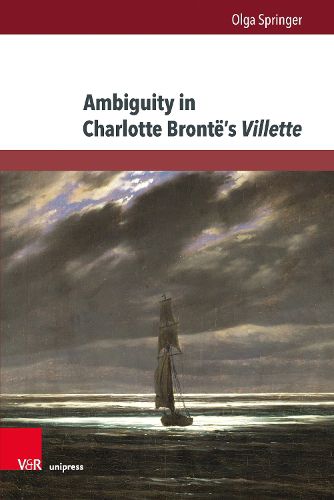Readings Newsletter
Become a Readings Member to make your shopping experience even easier.
Sign in or sign up for free!
You’re not far away from qualifying for FREE standard shipping within Australia
You’ve qualified for FREE standard shipping within Australia
The cart is loading…






Charlotte Brontes final novel Villette (1853) is associated with ambiguity because of its open ending: Does M. Paul return to narrator-protagonist Lucy Snowe or is he killed in a storm raging on the Atlantic? Taking its famous ending as a starting point, this study explores Villette as a text in which ambiguity is all-pervasive in various ways. Among these is the narrators ambivalent attitude toward herself and others, epitomised in her stylistic idiosyncrasies. The links between ambiguity and doubt are explored through an analysis of Lucys signature phrase, I know not, expressive of her existential doubts and questioning attitude toward the world. The analysis moreover focuses on the motif of the oracle as a traditionally ambiguous utterance, and explores its relevance in the context of the generic tradition of Villette as a fictional autobiography. Another focus is the interplay of figurative and literal levels of meaning in the allegorical episodes, creating ambiguity.
$9.00 standard shipping within Australia
FREE standard shipping within Australia for orders over $100.00
Express & International shipping calculated at checkout
Charlotte Brontes final novel Villette (1853) is associated with ambiguity because of its open ending: Does M. Paul return to narrator-protagonist Lucy Snowe or is he killed in a storm raging on the Atlantic? Taking its famous ending as a starting point, this study explores Villette as a text in which ambiguity is all-pervasive in various ways. Among these is the narrators ambivalent attitude toward herself and others, epitomised in her stylistic idiosyncrasies. The links between ambiguity and doubt are explored through an analysis of Lucys signature phrase, I know not, expressive of her existential doubts and questioning attitude toward the world. The analysis moreover focuses on the motif of the oracle as a traditionally ambiguous utterance, and explores its relevance in the context of the generic tradition of Villette as a fictional autobiography. Another focus is the interplay of figurative and literal levels of meaning in the allegorical episodes, creating ambiguity.